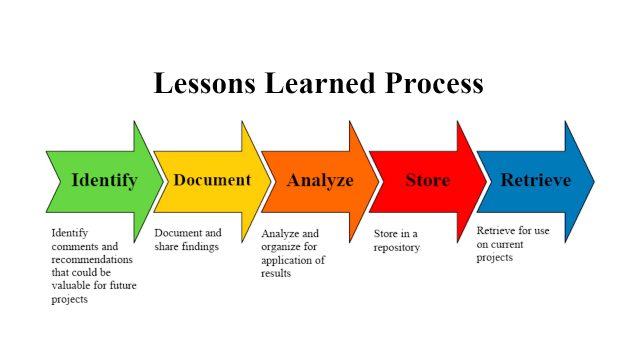
What is the scope of knowledge management? [EKM series]
Editor’s note: This is a continuing serialisation of edited portions of Andre Saito’s PhD.
Broadly defined, knowledge management (KM) refers to a deliberate and consistent effort to improve the utilization, transfer and creation of knowledge in organizations. As a field of academic inquiry, it is the combination of a wide range of theories and constructs appropriated from various disciplines with some original models and concepts developed specifically to address such a problem.
Knowledge management is well known to be a multidisciplinary field1. Contributing disciplinary areas include:
- management science
- business
- computer science
- organizational science
- library and information science
- psychology
- social sciences
- planning and development
Key themes in knowledge management have been grouped in various ways, with one prominent study identifying eight domains of KM research:2
- Knowledge as a Firm Capability
Focus: business strategy and the role of knowledge as ‘firm capability’ delivering competitive advantage.
Sample topics: core competences of firms, combinative capabilities of firms, the resource-based view, social capital, knowledge articulation within firms, dynamic capabilities
- Organizational Information Processing and IT support for KM
Focus: how organizations process information and how information and communications technologies support that process.
Sample topics: organizational information processing, organizational memory, organizations as interpretive systems, managers’ information processing behaviors, the structuring of organizations, information systems.
- Knowledge Communication, Transfer and Replication
Focus: knowledge transfer processes in organizations, which involve a complex dynamics of reconstruction and recombination of knowledge.
Sample topics: stickiness of knowledge, the role of social networks.
- Situated Learning and Communities of Practice
Focus: learning and knowledge sharing processes as situated and context-dependent social phenomena.
Sample topics: situated learning communities of practice.
- Practice of Knowledge Management
Focus: informing managerial practice.
Sample topics: anecdotal accounts of KM initiatives that provide insights for practitioners, from authors like Thomas Davenport, Thomas Stewart, Peter Drucker, and James Brian Quinn.
- Innovation and Change
Focus: the innovation process.
Sample topics: economic aspects of innovation, evolutionary perspective of economic change, absorptive capacity of organizations, the role of users in innovation.
- Philosophy of Knowledge
Focus: the origin and nature of knowledge.
Sample topics: tacit knowledge, organizational knowledge, typologies of knowledge, organizational epistemology.
- Organizational Learning and Learning Organizations
Focus: organizations as learning entities.
Sample topics: organizational learning, learning organization
In addition to these areas of research, each discipline brings its own perspective on where KM should be delivering value:
- Strategic focus
- leveraging knowledge as a strategic resource for sustainable competitive advantage
- recognising knowledge as a central factor in innovation and evolution in organisational routines
- applying the knowledge-based theory of the firm to explain their existence, as well as other factors determining scale and scope
- Accounting focus
- applying a tangible value to an organisation’s intellectual capital
- treating human capital, structural capital and relational capital as distinct, manageable things
- Organisational science focus
- maximising organisational potential through knowledge transfer and protection
- institutionalising individual and group learning to create organizational knowledge embedded in non-human repositories such as routines, systems, structures, culture, and strategy
- working out common sense in communities of practice through mutual engagement
- analysing social network relations between actors (ie individuals, groups of individuals, and firms), including weak and strong ties
- creating emergent knowledge and meaning through organisational sense-making 3
Next edition: How human resources factors influence choices in KM, and its likelihood of success.
- Ponzi, L. J. (2002). The evolution & intellectual development of knowledge management. Doctoral dissertation, Long Island University, NY. Retrieved March 22, 2005, from Proquest. ↩
- Subramani, M., Nerur, S. P., & Mahapatra, R. (2003). Examining the intellectual structure of knowledge management, 1990-2002 – An author co-citation analysis. Working paper no. 03-03, University of Minnesota. Retrieved April 19, 2006, from http://misrc.umn.edu/workingpapers/fullpapers/2003/0323_061503.pdf. ↩
- Wenger, E. (1998). Communities of practice: Learning, meaning, and identity. Cambridge, UK: Cambridge University Press. ↩







Following up on Bruce’s definition of KM…”Broadly defined, knowledge management (KM) refers to a deliberate and consistent effort to improve the utilization, transfer and creation of knowledge in organizations.” One should ask “for what” or “so what.”
KM as described above has an intended outcome which from my perspective is to “continually improve performance (mission accomplishment) at the individual, team, and organization level through a continually improving ability to capture, adapt, transfer, and reuse the critical and relevant knowledge of the organization.Otherwise, why would an organization invest time and resources in KM and why would an individual in the organization invest their time and effort using “KM” concepts and practices as part of the way they accomplish their work?
Part of the challenge (to understanding the value of KM) is enabling a broader understanding of “Why KM?” in the context of the business & operational environment of the organization. Need both.
Quite right Bill. Unless you have a shared understanding why you are doing it, where is the value and the return. Although I am loathe to get into a discussion on definitions, I use: ‘the management processes through which organizations increase the value they generate from their intellectual capital’.
While the framework provides food for thought, I think it is a bit too broad brush and as a result, has gaps. For example, where is the engineering or legal focus? Despite that, it is important to have multiple views on a topic in order to understand it better. Thanks for the article Andre.